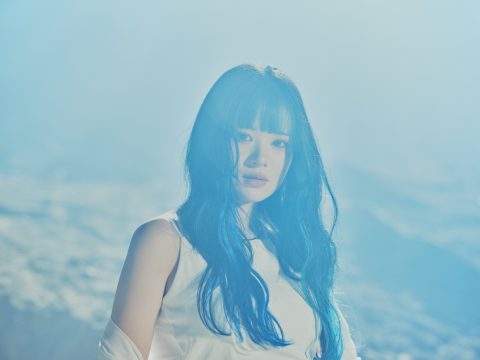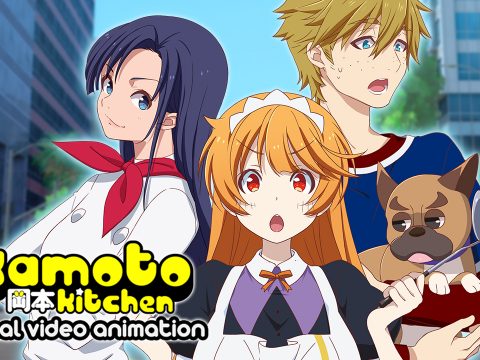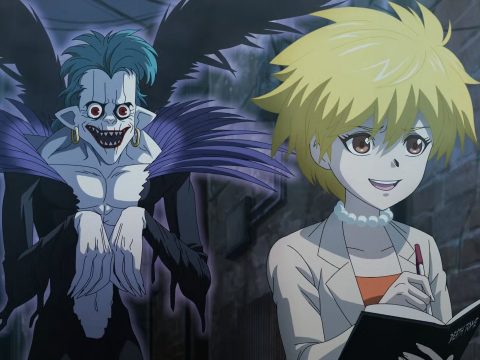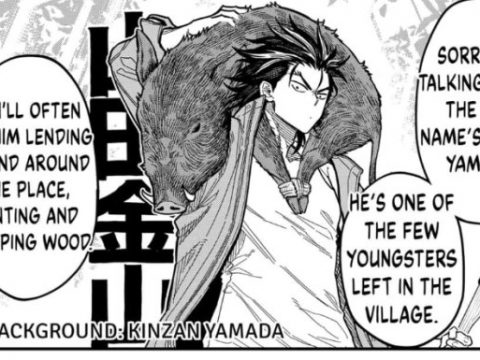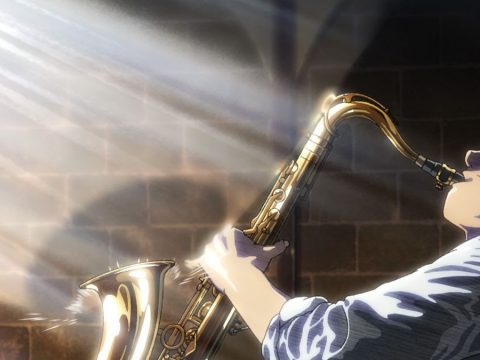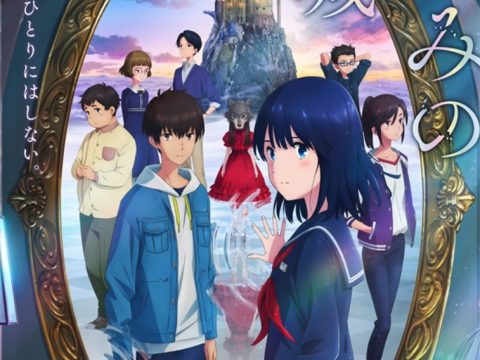It must not be possible for Helen McCarthy to be bored. Along with writing books on anime and manga, designing needlework, penning her own poetry and speaking at conventions, she still comes up with plenty of fascinating ideas on what she’d like to do with her free time.
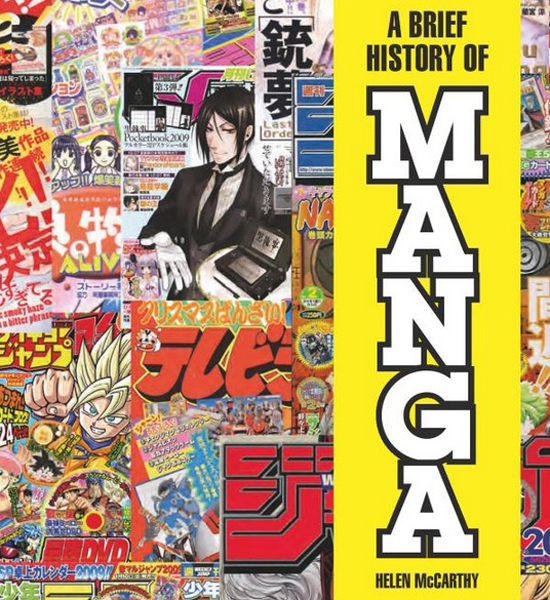
We caught back up at Anime Central, and McCarthy had some great news right off the bat: A Brief History of Manga will be hitting the shelves next month. “It’s taken me back to short books that communicate with a lot of pictures,” she said. “I’d like to do a whole line of books, ‘Brief History of.’ I’ve gone back into the history of manga and tried to do it in 90 pages. Which worked out better than I thought it would, though originally I wrote it at 120 pages and some of it had to come out.”
McCarthy’s The Anime Encyclopedia, which she penned with Jonathan Clements, is about to be re-released bigger and better than ever. “That’s been another ride altogether,” she said. “We’ve got that coming out in December. This will be the third edition. It has more than a thousand new entries and more than four thousand amendments, updates, extensions. That’s been enormous fun, because since 2007, so much has changed in the anime business.”
I asked if there was any headway on her proposed BBC documentary on manga, which she had spoken about last Anime Central. “Unfortunately not,” she said. “The guy I’m working with, who is a very distinguished British TV producer, who’s worked for every television channel in Britain, really, really wants to do this the traditional way, so we’re approaching every other channel we can think of.”
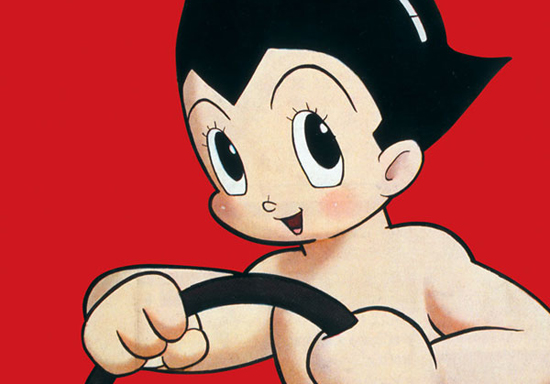
I’d caught her press presentation earlier in the day, where she’d talked about everything from fox sex (you had to be there — it made sense in context) to women in fandom. She’d been expressing her disappointment in the widespread sexism that can be found within parts of the gaming community. Since in the past I’ve written the argument that sexism is far less rampant in anime and manga fandom than it is in American comic book fandom, I wanted her take on this.
“Thinking back to my own childhood, growing up in Britain, we still had a female comics culture,” she said. “We didn’t have an awful lot of women reading comic books, but there were comics for younger girls. Back then the social and cultural thing was that when you grew up and got married, you graduated to reading magazines about recipes and how to clean the house, and that was that. It was a totally different world. But we had that comics culture, and during the 60s that culture completely died out. But in Japan, female comics culture never died out. Japan catered to girls all the way through. At the end of the war, when Japan might have folded its comics culture and followed the American model, comics was one of the few things people could actually afford. So there was an encouragement for the Japanese to keep on with this very cheap, very accessible form of entertainment. The comics culture was much more all-embracing. Girls in Japan grew up thinking, ‘You know, not every girl reads comics, but reading comics is as okay for a girl as a guy.’ There’s no stigma. Now that comics are an acceptable field of scholarship, both genders in Japan can engage in it equally, whereas girls in Britain and America, unless they have the courage to be comics nerds all their lives, find it much more difficult to get back into engaging with that culture. It’s interesting: France and Belgium also have very strong female fandoms, because they have very inclusive, very embracing comics cultures. Just that culture, of having those comics that are accessible to you, that are made by people like you, other females, makes it possible to go on reading comics later. I think that’s what Japan has that we don’t have.”
McCarthy continued, “The thing I find really disturbing about so many English language comics is the same thing I find disturbing in some video games: this idea the opposite sex is something to be hated and feared. The amount of misogyny in American comic books, in British comic books, in games… it’s just terrifying.”
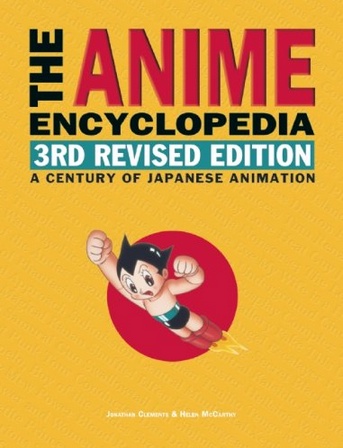 Moving on to a less intense topic, I asked her about the changes she’s seen in anime since she first got interested in it.
Moving on to a less intense topic, I asked her about the changes she’s seen in anime since she first got interested in it.
“Actually, I don’t think the themes have changed all that much,” she said. “The central theme of entertainment is still one of the five great stories. It’s the hero’s journey, it’s the star-crossed lovers (harem can be star-crossed lovers as well), it’s the disaster movie. The earthquake stories that came out of the 2011 earthquake were really interesting because they really echoed the earthquake stories after Kobe in ’95, and then the earthquake before that in ’74.”
She went on, “The difference is the way they dress them up. Butlers, very fashionable, lots of them around. Maids, very fashionable, lots of them around. Neither particularly around in ’78, ’79, ’80 except the role you’d probably expect as servants. I do notice the marketing and merchandising aspect of a franchise is becoming more prominent than any other aspect of the show. Shows are conceived as franchises. That’s quite a disturbing thing in a way because it means that instead of having a strong story and a hook that will draw people into the narrative, and a narrative that will reveal something to them about themselves, what we’re saying is, ‘What kind of girls do people think are cute? What kind of animals do people think are cute?’ Even in one case there were talking turds. ‘How can we characterize these to make them cute?’ That was a serious fad with stationery and keyrings, and an anime and a manga were done. It’s the merchandising that I think is more worrying than the fact old stories are getting new clothes, because old stories always get new clothes.”
McCarthy, meanwhile, is always thinking about new ways to write about anime and manga, and how to teach people more about them, especially English-language speakers who don’t have access to all the information that’s in Japanese. “I’d really like to look more closely at different auteurs,” she said, when asked what else she’d like to write. “So far we have very little writing on anime creators. I’m constantly trying to think of ways of presenting anime in a lively way that’s accessible. I’ve been talking with Crispin [Freeman] about podcasts. I’ve never really considered doing a podcast, but he tells me it’s really not that difficult. The other thing I’d really like to do — and I’m planning to do with a group of friends who are writers — is start a website with tips and tricks for making your writing more sellable. And my challenge for the next few years is to do more focusing and do more writing.”


